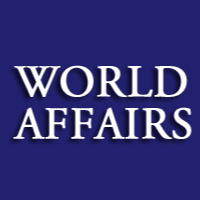Does China Need a Jinping the Great?

“The Chinese,” wrote Garnet Wolseley, “are the most remarkable race on earth, and I have always thought, and still believe them to be, the coming rulers of the world. They only want a Chinese Peter the Great or Napoleon to make them so.”
Yes, the Chinese are indeed remarkable, and on Friday Tom Holland, the South China Morning Post columnist, argued that Wolseley, a 19th-century British field marshal, was farsighted. Yet Wolseley’s words, from 1903, have been proven wrong. China, as Holland should know, got its fair share of larger-than-life figures in the 20th century. There was, most notably, the willful Chiang Kai-shek and then the charismatic Mao Zedong. Neither was lacking in ambition or strength, and yet both ultimately failed the Chinese people.
Wolseley was correct that the Chinese needed leadership, but they did not need a Chinese Napoleon. What they needed then—as they still do today—is a system that allows them to lead themselves. The Communist Party of China, however, insists it has a historical obligation to rule.
The party chose a new general secretary last November, Xi Jinping, the first one to be born after that organization came to power in 1949. “He has ambition to be a great leader, someone like Mao Zedong,” said Bo Zhiyue of the National University of Singapore early this year. “He wants to change things.”
Xi’s changes have been noticeable. Chinese officials no longer talk about “harmony,” the theme of Xi’s predecessor, Hu Jintao. They now lavishly praise Xi’s “China Dream.” Beijing is big on show campaigns, like the one against displays of official extravagance. Disturbingly, Xi has been responsible for a resurgence of Maoist imagery. Cadres these days are fond of talking about the “mass line,” for instance. The crackdown on human rights has intensified, and the atmosphere at this moment is even worse than it was during the dismal years over which Hu presided. And Xi has played to the military, allowing flag officers to engage in a series of provocations against China’s neighbors to the south and east, especially India, the Philippines, and Japan.
Xi’s accession last year triggered the usual wave of hope and optimism, but now much of that has turned to disappointment and even despair. His defenders, such as Kenneth Lieberthal of the Brookings Institution, make the case that Xi is just shoring up his defenses on his “left”—Maoist—flank so that he can go out and implement real reform later.
That very well may be the case, that to move “right” in China a new leader must first pander to the “left.” That was the same excuse made for Hu Jintao, who never quite executed the pivot to progress. Many Chinese now call his ten-year tenure “the lost decade.” In any event, one has to wonder about a political system that requires a new leader to endorse Maoism, implement campaigns of repression, and commit acts of aggression just so that he can sponsor what most everyone views as progress. These unwelcome acts suggest that today China’s current system is incapable of reforming itself.
China’s leaders going back to Deng Xiaoping have made the case that the country could—and should—pursue economic reform before political reform. Now, they are pursuing neither. Why? Economic reforms, initiated at the end of 1978 by Deng, have enriched state institutions, and these institutions have been able to translate economic success into political power. They have then used newfound clout to block further economic reforms that would undermine their role in society. So economic reform has stalled ever since Deng’s reign ended in the1990s.
Entrenched interests are now so powerful that they have appeared to capture the Politburo Standing Committee, the apex of Chinese political power. Because the political system has become comfortable with the status quo, reform looks dead in the water.
And that brings us full circle. The Communist Party developed its collective system largely as a reaction to Mao, responsible for the Great Leap Forward and other calamities, and Mikhail Gorbachev, whom Chinese leaders blame for the fall of the Soviet Union. So Wolseley was right that China lacked the right kind of leadership but wrong to suggest the country had to have a great leader. What China needs is not a Jintao the Magnificent or a Jinping the Great but a new political system, one where 1.4 billion Chinese make decisions for themselves.
OG Image:
Gordon G. Chang's Blog
- Gordon G. Chang's profile
- 52 followers



